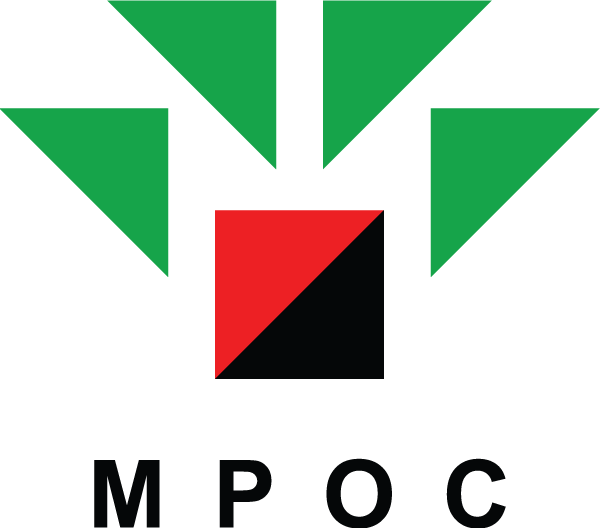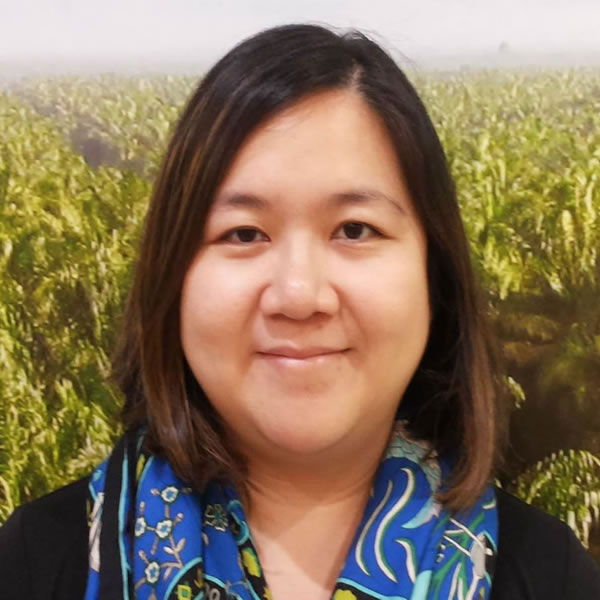
ORGANIZED BY:

Module 1 - Agricultural Commodities and Sustainability Certification:
Sustainability in the Palm Oil Industry: The New Business-As-Usual

Ms. Perpetua George
Perpetua “Pep” George has a career spanning work in forest conservation, sustainable production consulting, the FMCG industry, and oil palm plantations. Previously working for Unilever, Proforest, and WWF - she is currently the General Manager for Group Sustainability in Wilmar International.
Her current responsibilities cover the implementation of sustainable practices in Wilmar’s plantation operations and spearheading the sustainable transformation of their supply chain. She is an active participant in wider engagement with stakeholders within the partnerships and initiatives that Wilmar belongs to such as the Roundtable for Sustainable Palm Oil, PONGO Alliance, the Tropical Forest Alliance, and the Sabah Jurisdictional Approach Steering Committee.
Pep holds an MSc in botany and anthropology, and her research expertise is in the natural resource use of local communities – focusing on how land and different forest types are valued amongst the indigenous communities of Sabah in Malaysian Borneo.
VIEW PROFILE
Wilmar is among the world’s leading agri-businesses. Since 2004, Wilmar has always strived to be at the forefront of sustainability in the palm oil industry. Efforts to transform its business towards becoming more responsible and sustainable started in the 2000s, and in 2008 the company obtained its first Roundtable on Sustainable Palm Oil (RSPO) certificate.
The Wilmar sustainability trajectory is one that is shared with palm oil industry. The initial sustainability wave from the 2000s was on building and strengthening internal company compliance. The second wave of sustainability from 2013 was extending commitments to include suppliers’ compliance. The current wave, where 2020 is a key target year, is focussed on benchmarking deforestation as a key indicator for recognition of sustainability status. This trajectory is shared by a large segment of the palm oil industry, and is indicative of its acknowledgement of sustainability as relevant for performance advancement and business relevance.
Another key driving factor is the demand from major consumer brand companies, that continue to be the focal point of campaigns by the NGO community on palm oil. These campaigns repeatedly drive messages targeted towards consumers and the general public, which influence palm oil procurement policies of the consumer brand companies.
Considering these factors, operationalising sustainability practices and showing proof of compliance is the new business-as-usual. Sustainability can no longer be considered a trend, and it is now a key requirement for palm oil companies to remain competitive and relevant in today’s global marketplace. Adopting the new business-as-usual includes maintaining sustainability-related certifications, reporting on traceability, increasing transparency, and ensuring supply chain compliance, among others.
There are clear supply chain demands for sustainability-compliant volumes, which leads us towards vast opportunities by strengthening both the Indonesian and Malaysian certification schemes that will allow the industry to deliver them.
The Wilmar sustainability trajectory is one that is shared with palm oil industry. The initial sustainability wave from the 2000s was on building and strengthening internal company compliance. The second wave of sustainability from 2013 was extending commitments to include suppliers’ compliance. The current wave, where 2020 is a key target year, is focussed on benchmarking deforestation as a key indicator for recognition of sustainability status. This trajectory is shared by a large segment of the palm oil industry, and is indicative of its acknowledgement of sustainability as relevant for performance advancement and business relevance.
Another key driving factor is the demand from major consumer brand companies, that continue to be the focal point of campaigns by the NGO community on palm oil. These campaigns repeatedly drive messages targeted towards consumers and the general public, which influence palm oil procurement policies of the consumer brand companies.
Considering these factors, operationalising sustainability practices and showing proof of compliance is the new business-as-usual. Sustainability can no longer be considered a trend, and it is now a key requirement for palm oil companies to remain competitive and relevant in today’s global marketplace. Adopting the new business-as-usual includes maintaining sustainability-related certifications, reporting on traceability, increasing transparency, and ensuring supply chain compliance, among others.
There are clear supply chain demands for sustainability-compliant volumes, which leads us towards vast opportunities by strengthening both the Indonesian and Malaysian certification schemes that will allow the industry to deliver them.
REGISTER OR LOGIN TO VIEW FULL REPORT
REGISTER OR LOGIN TO VIEW PRESENTATION SLIDES
Questions & Answers
Please login to post comments.




